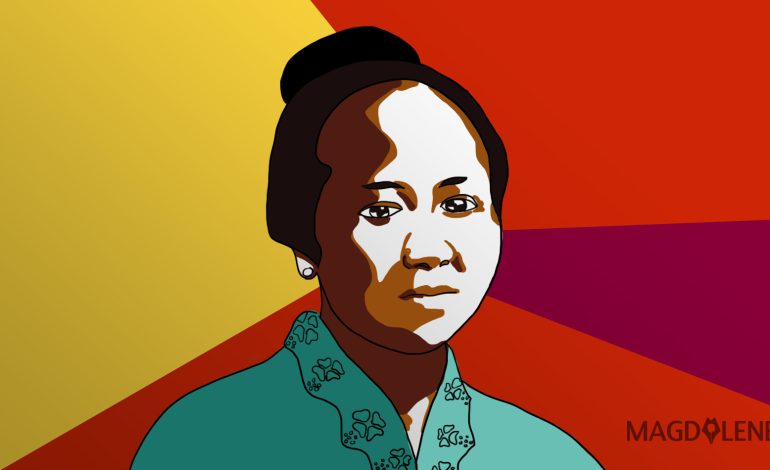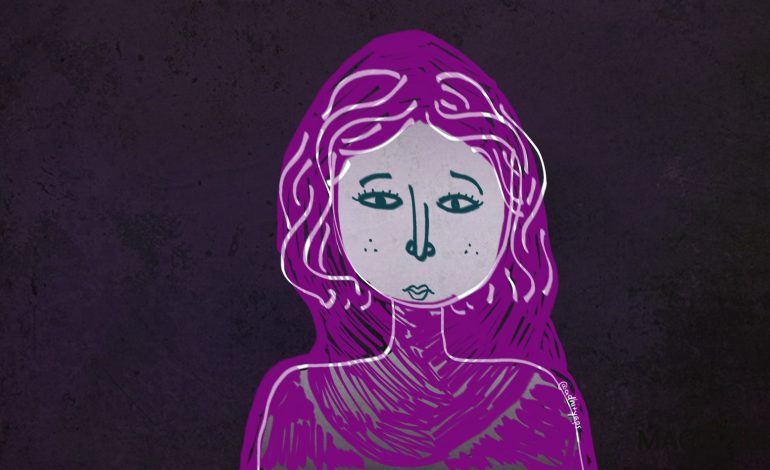More than Social and Political Emancipation: Reframing Kartini’s Thoughts

It is interesting to see how societies mainstream women’s role models. For Indonesians, R.A. Kartini represents women’s struggle over gender equality and the recognition of women’s emancipation. She started by fighting for women’s educational rights. Her ideas on liberation from colonialism and for women to be recognized as equal entity who deserves self-development and autonomy are enlightening. Yet the common interpretations of Kartini’s struggle have only faintly attempt at the idea of liberation for underprivileged women.
Kartini’s idea of empowering women’s education is rooted in a very specific context of middle-class Javanese women who were privileged enough to gain access for basic welfare. Despite the oppressive Javanese patriarchal culture that limited her freedom as a woman, she was relatively luckier compared to most other women in her time. She was born and raised in a wealthy intellectual aristocratic family of Jepara. It allowed her to learn how to read, write and speak in foreign languages; attend school; acquire books; and correspond with her educated foreign friends.
This background is a significant determining basis that enabled her to be “the Kartini” whose merits are now acknowledged as national heroine. I understand how Kartini became a great role model for women’s social status recognition. Her spirit encourages women’s engagement in public discourses on issues such as the production of knowledge, legal-political participation, rights over authority, etc.
But the discourses are insufficient to address wealth redistribution problem, because her notions have mostly been interpreted in a way that de-emphasizes economic inequality. Kartini’s ideas of feminism need to be grounded in order to reflect the basic and crucial redistribution issue faced by lower-class women.
Kartini wrote a lot about women’s sufferings because of the Javanese tradition. She also wrote about the struggle for national independence, denouncing colonialism. Yet nowadays her works are rarely exposed to reflect the economic violence faced by most Indonesian women – and to reflect another spectrum of unfortunate women who are oppressed by poverty and exploited by capitalism.
Many of us tend to portray Kartini merely as representing the fight against cultural oppression and women’s social seclusion. Consequently, we glorify “women’s self-autonomy in social-political aspect” as the only urgent matter that Kartini wanted to fight for.
By comparison, Kartini’s denunciation of colonialism can be used in a fight against today’s economic oppression, but this view of reflecting her thoughts in the context of low-income women has not been mainstreamed. It is possibly because her aristocratic image is more closely linked to the middle-class feminist’s agenda of pursuing social-political recognition.
Kartini argued that education can improve our capability, thus liberating us from oppression and poverty. However, education and poverty are like vicious cycle: poor people could get out of poverty as long as they are educated, but in order to get education they cannot be too poor as they have to be able to at least fulfil their basic needs. In Indonesian context, where the government is still unable to provide basic welfare to its citizen, this is a highly relevant consideration.
The government has begun to provide subsidies for education through programs like Bantuan Operasional Sekolah and Bantuan Siswa Miskin. Unfortunately, the assistance is not yet widely dispersed and accessible for all. In some of the poorest communities, where buying food on a daily basis is still a struggle, sending children to school is not preferable. More urgently for them is to find work so they can buy food to fill their empty stomach.
This condition is a major hindrance for pushing educational agenda. Even for those who are not that poor, but who are trapped within the patriarchal culture, education remains beyond their grasp. Some women and mothers are unable to pursue higher education because they must take care of their households and raise children as the result of gender-biased role division.
Yes, Kartini had deconstructed this patriarchal culture by showing that women do no merely belong to “dapur, sumur, kasur” (kitchen, water well, and bed). But deconstruction is only relevant as long as you are privileged enough or economically capable to at least fill your stomach up. What about those who are marginalized, underprivileged and too poor to even survive day after day? They are oppressed in multiple degrees by poverty and patriarchy. They cannot suddenly actualize their will to smash patriarchy unless they get rid of poverty.
I’m not discrediting Kartini because she was privileged, but I’m implying that we need to ground her ideas on the basic level of welfare objective for every women on the spectrum. We often depict Kartini as a “saviour” from patriarchy, but we tend to forget that patriarchy is much more structural to be defeated than by mere “emancipation.” We often disregard poverty and economic inequality as fundamental manifestation of oppression, therefore poverty and patriarchy seem to be two isolated matters.
It is important to widen what constitutes as feminism’s urgent matters. How? By redefining what Kartini portrayed as oppression, so that we can incorporate economic inequality as a form of patriarchy. Under this logic, efforts to empower poor women and foster redistribution of wealth become urgent too.
The struggle of lower-class women figures for achieving economic rights and survivability is a crucial feminist issue that has to be mainstreamed. Take the women farmers from Kendeng who struggle for their ecological rights, and women labors in various sectors from household, manufacturing industry to plantation who fight against violence and exploitation.
We must deconstruct the dominant notion of “elitist feminism” by acknowledging that all spectrums of women (and society in general) can be feminists too, and that the struggle for equality can be raised by other Kartinis, including those who come from the grassroot community.
Husna Wulansari is a young-adult mediocre who is currently pursuing undergraduate education. She prefers sleeping over engaging in superficial interaction with humans.






















